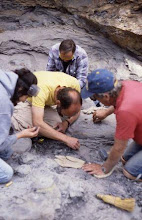As directed, I've moved my connectivist studies working site away from the U of Manitoba / MOOC gathering place. This site is useful as it was designed for PLE mapping and still contains some of that work.
Next assignment is on the Changing roles of Educators so it's time to collect information on what learning will look like in the next while. Not being an educator myself (but close to those who are and also an avid life-long-learner) I'm already developing a sorting mechanism for understanding future speculations that might be useful to work on. There's a huge amount of gee-whiz which almost always starts with "secrets of engaging the 21st century (genration y, digital native, self-empowering techno-wonderchild) student." Most of this material is not thought out and just repeats a few assumptions about young learners. Old habits of generalization of client to simplify and limit service models used by institutions everywhere and always. The process creates a model client, builds a theory of delivery to this imaginary model then declares the model to be that actual client. Defficiencies noted when the theory is applied to real clients and those clients fail to respond as predicted are then laid at the feet of the clients absolving the institution of responsibility. (This is different than theory which is the test of an idea about the world against worldly evidence or response. Here, the idea is to come up with a simplified model to build a simplified strategy and then ignore or dismiss the evidence [feed forward I think])
Useful reads:
Posted class readings
McArthur / MIT series especially "Growing Up Digital" and "Rule Set for the Future" where "I will return to the question of methodology at this essay's close, but, for now, suffice it to say that grand, one-size-fits-all theories are probably of little use in helping assess the potential outcomes and affordances of the digital era."
Subscribe to:
Post Comments (Atom)

I was wondering why you left the MOOC gathering place.
ReplyDeleteI like your comment on the gee-whiz factor. I wonder sometimes why it is so important to have a theory - who benefits from naming it?
Good luck with your studies
Ken